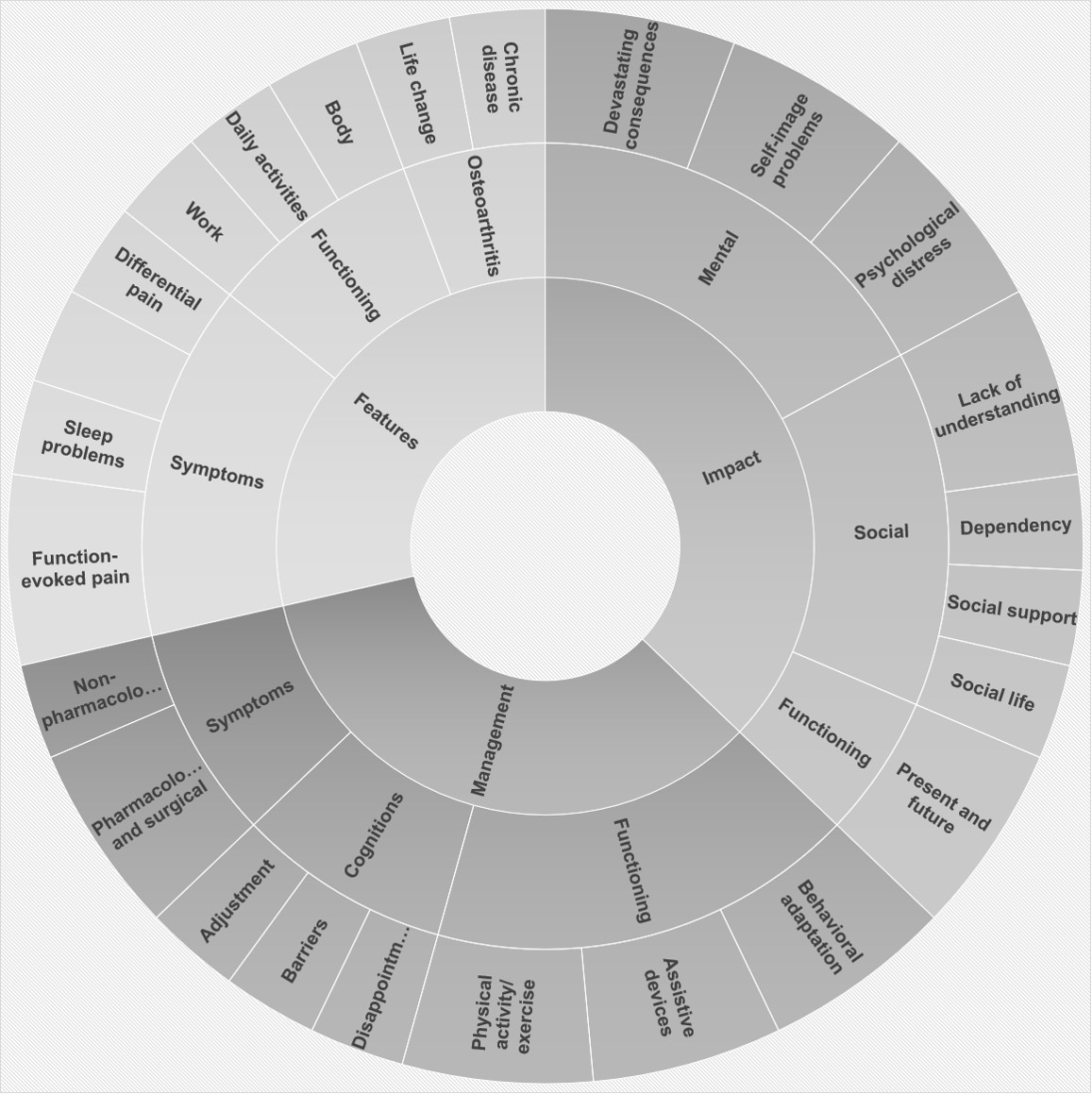Session Information
Session Type: Poster Session C
Session Time: 10:30AM-12:30PM
Background/Purpose: Knowledge of beliefs, needs, and priorities of people with osteoarthritis (OA) is of utmost important to be able to offer person-centered care. Concepts that are important to the OA people are not fully represented in the most commonly used instruments. To be able to improve assessment and management of OA and to enhance research, the aim of the current study was to clarify how OA people conceive, experience, and manage their OA pain.
Methods: The study was part of the multinational and multidisciplinary Going inside Osteoarthritis-related Pain Phenotyping (GO-PAIN) working group. A systematic literature review of qualitative studies was conducted, including the Pubmed, EMBASE, Scopus, Web of Science, Psycinfo, CNAIHL databases and the Cochrane library to identify all qualitative studies concerning OA-related pain up to October 2023. Using Rayyan, two investigators (SM and RG) independently selected potentially relevant articles and extracted the studies’ and OA patients’ characteristics. All the words or sentences expressed by OA patients and related to their pain were collected and merged in verbatim quotations and codes. Descriptive themes relating to these codes were defined. Finally, in thematic synthesis, overarching categories based on descriptive themes were used to identify analytic themes. The methodological quality of each study was assessed using the consolidated criteria for reporting qualitative research (COREQ) checklist.
Results: The seven databases yielded a total of 9,585 studies. After removal of duplicates and reviewing the titles, abstracts, and full texts, 79 qualitative studies were selected. We obtained 667 verbatim quotations, 123 codes, and 25 descriptive themes described in Figure 1 (for example: social life, work, behavioral adaptation, devastating consequence, barriers, self-image problems, social support, life change, psychological distress, disappointment in treatment, dependency…). Three analytic themes were defined: features, impact, and management. The median COREQ score was quite good at 21 [min-max: 8-29].
Conclusion: This study yielded over 600 verbatim quotations from OA people that were categorized in three analytic themes: Features, Impact, and Management. The beliefs and other individual differences categorized under ‘Features’ may support individualized screening and help the development of educational materials. The consequences categorized under ‘Impact’ can be used to complement existing assessment instruments. The barriers and facilitators categorized under ‘Management’ may support the development of sel-self materials and treatment.
To cite this abstract in AMA style:
Mathieu S, Courties A, Mathy C, Perrot S, Alliot Launois F, Moumbe S, Foulquier N, Sellam J, Geenen R. The Identity, Impact, and Management of OA and OA Pain from the Perspective of People with OA: A Systematic Literature Review of Qualitative Studies [abstract]. Arthritis Rheumatol. 2024; 76 (suppl 9). https://acrabstracts.org/abstract/the-identity-impact-and-management-of-oa-and-oa-pain-from-the-perspective-of-people-with-oa-a-systematic-literature-review-of-qualitative-studies/. Accessed .« Back to ACR Convergence 2024
ACR Meeting Abstracts - https://acrabstracts.org/abstract/the-identity-impact-and-management-of-oa-and-oa-pain-from-the-perspective-of-people-with-oa-a-systematic-literature-review-of-qualitative-studies/

